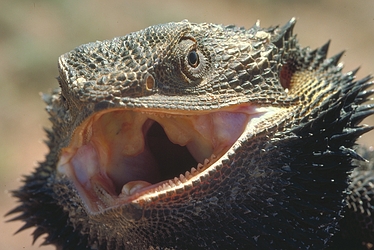How to Treat Gout in Your Bearded Dragon: A Comprehensive Guide
Bearded Dragon Gout Treatment: A Guide for Beginners
Bearded Dragons are popular household reptiles known for their docile nature and unique appearance. They make great pets but like any living creature, they are prone to certain health issues. One such condition is Gout. Gout is often seen in Bearded Dragons but is relatively easy to treat if caught early. This guide is an introduction to gout, its symptoms, and how to treat it in your Bearded Dragon.
What is Gout?
Gout is a metabolic disease in which an excess of uric acid accumulates in the bloodstream and joints. Gout is the result of the body’s inability to process uric acid effectively. This accumulation of uric acid can cause joint pain and inflammation, leading to a variety of symptoms.
Symptoms of Gout
- Lethargy
- Excessive urination
- Swollen and inflamed joints
- Weight loss
- Loss of appetite
What Causes Gout in Bearded Dragons?
There are several factors that contribute to the development of gout in Bearded Dragons. One of the most common causes is an improper diet. Bearded Dragons require a diet that is high in calcium and low in purines. Purines are compounds present in certain foods that are broken down into uric acid by the body. A diet that is high in purines can lead to the accumulation of uric acid in the body, increasing the risk of gout.
Treating Gout in Your Bearded Dragon
Fortunately, gout in Bearded Dragons is easily treatable if caught early. The first step in treating gout is to identify the symptoms and seek veterinary care immediately. Early intervention is essential to preventing permanent joint damage and other complications. Your veterinarian may recommend a variety of treatments depending on the severity of the gout.
Dietary Changes
One of the most effective ways to treat gout in Bearded Dragons is to make dietary changes. A diet that is low in purines and high in calcium can help to reduce the levels of uric acid in the blood. Your veterinarian may recommend feeding your Bearded Dragon a diet that includes high-calcium vegetables such as collard greens, broccoli, and kale. In addition, they may recommend reducing or eliminating foods that are high in purines, including meat, fish, and insects.
Medications
In some cases, your veterinarian may prescribe medication to treat your Bearded Dragon’s gout. Medications such as allopurinol can help to reduce the levels of uric acid in the bloodstream, reducing the risk of joint damage and other complications. Your veterinarian may also recommend anti-inflammatory medications to reduce inflammation in the joints and alleviate pain.
Surgery
In severe cases of gout, surgery may be required to remove uric acid crystals from the joints. This is typically done under anesthesia, and your veterinarian will discuss the risks and benefits of this procedure with you.
Preventing Gout in Your Bearded Dragon
Prevention is always the best course of action when it comes to your Bearded Dragon’s health. To prevent gout, it is essential to ensure that your pet is receiving a balanced diet that is low in purines and high in calcium. In addition, make sure that your Bearded Dragon is getting plenty of exercise and is living in a clean and stress-free environment. Regular veterinary check-ups are also essential to catch any potential health issues early on.
Conclusion
Gout is a common health issue in Bearded Dragons, but it is entirely treatable if caught early. As a responsible pet owner, it is essential to regularly monitor your Bearded Dragon’s health and seek veterinary care immediately if you notice any symptoms of gout. With proper care and treatment, your Bearded Dragon can live a happy and healthy life for many years to come.








